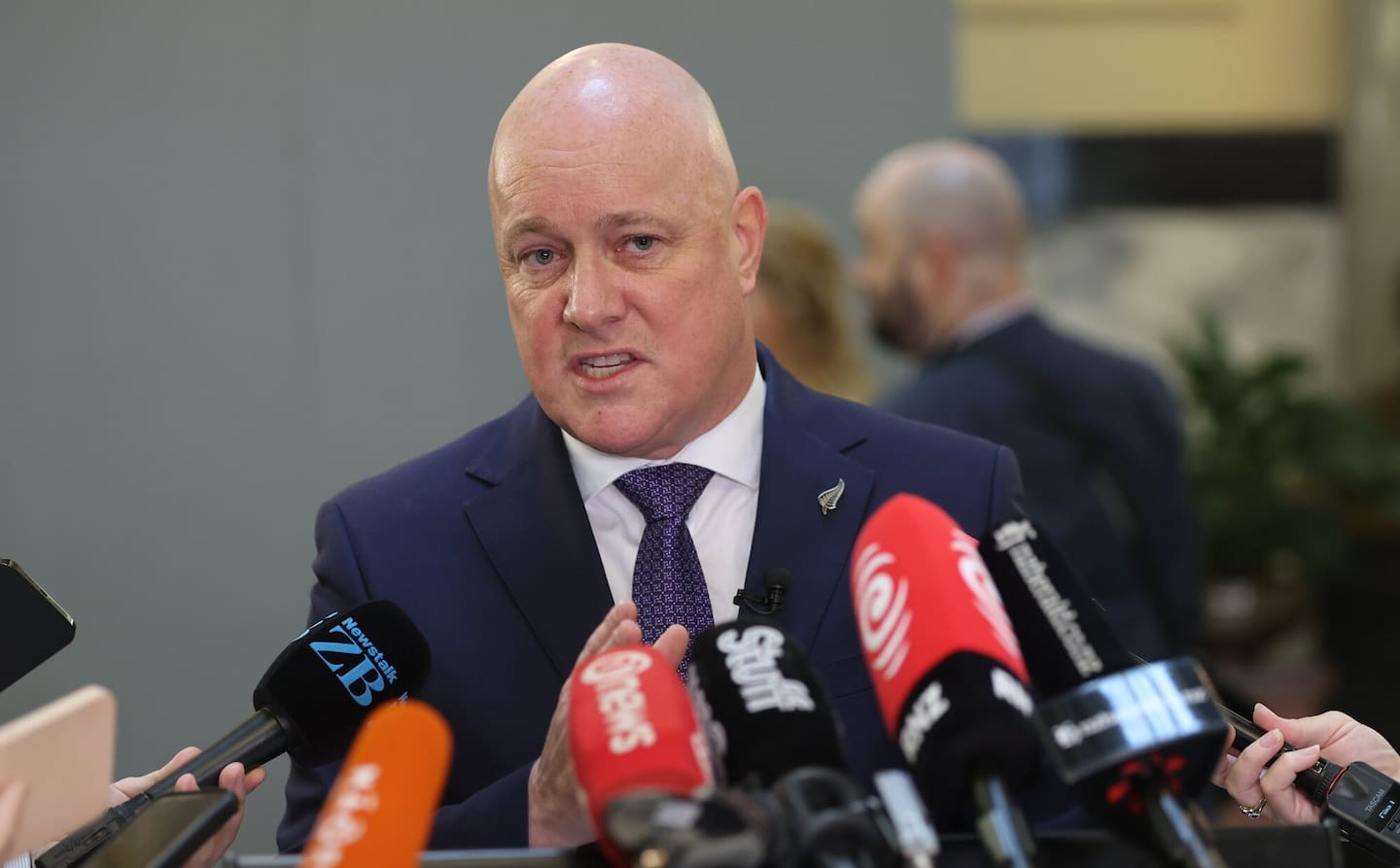
Foreign Minister Winston Peters is condemning the use of ãmilitary languageã while discussing the international trade environment, the kind of words that have been used by Prime Minister Christopher Luxon.
It is the latest example of the pair being at odds about New Zealandãs response to the fallout from United States President Donald Trumpãs unpredictable tariff implementation regime.
Speaking at the East-West Centre in Hawaii, Peters acknowledged it was an ãuncertain and anxiousã time in world affairs ã a nod to instability in global markets fuelled by Trumpãs tariffs.
However, he dismissed the suggestions the developments were unprecedented.
ãThis, coupled with the hyperactive social media age we live in, can generate an urge to react too quickly and too stridently,ã Peters said.
ãIn recent weeks, the tendency to hype up a debate about how international trade works into a black-and-white, polarising issue has been unfortunate and misguided.
ãThe use of military language ã of a ãtrade warã, of the need to ãfightã, of the imperative to form alliances in order to oppose the actions of one country ã has at times come across as hysterical and short-sighted.ã

Prime Minister Christopher Luxon says a "trade war" will bring consequences for New Zealand. Photo / Mark Mitchell
Petersã critique could apply to Luxon, who had regularly spoken of the consequences New Zealand would suffer from a ãtrade warã.
In a speech on Thursday, Luxon concluded by stating free trade was ãworth fighting for ã and Iãm up for that fightã.
Luxon also spent the end of last week discussing international trade with several world leaders, including Philippines President Ferdinand ãBongbongã Marcos jnr, Fijian Prime Minister Sitiveni Rabuka and European Union Commission President Ursula von der Leyen.
In Luxonãs conversation with von der Leyen, the pair discussed the prospects for closer co-operation between the European Union and the Comprehensive and Progressive Agreement for Trans-Pacific Partnership (CPTPP), of which New Zealand was a member.
Peters, in his speech, cautioned against actions intended to ãpick sidesã or ãform teamsã amid an evolving trade landscape, advocating to ãwait for the dust to settle before making choices we may later regretã.
He ended his address by promising he would ãpromote careful, pragmatic, quiet dialogue ã aimed at de-escalation and practical problem-solving, rather than premature posturingã.
Peters to Luxon: ãCall me next timeã
On Friday while in Tonga, Peters encouraged markets and politicians to ãnot lose their nerveã as the US retaliated against China by hiking tariffs, while placing a 90-day pause on retaliatory tariffs for other countries.
ãThereãs no need to react at this point in time. Letãs first find out what weãre dealing with, let the dust settle in,ã Peters told RNZ.
ãMy advocacy from the day this matter came up with the Trump tariffs - our job is to be ultra careful, ultra forward thinking in the interest of, guess what, the New Zealand economy, thatãs what matters, not our egos.
ãSo my advice to politicians is tone down, wait til you see and know whatãs going on.ã
Peters said the pair hadnãt discussed Luxonãs speech or his calls with world leaders ahead of time: ãSo I hope that heãll get my message and heãll call me next timeã.
Adam Pearse is a political reporter in the NZ Herald Press Gallery team, based at Parliament. He has worked for ƒéØ£Åú¢íößüß since 2018, covering sport and health for the Northern Advocate in Whangárei before moving to the Herald in Auckland, covering Covid-19 and crime.
Take your Radio, Podcasts and Music with you
Get the iHeart App
Get more of the radio, music and podcasts you love with the FREE iHeartRadio app. Scan the QR code to download now.
Download from the app stores
Stream unlimited music, thousands of radio stations and podcasts all in one app. iHeartRadio is easy to use and all FREE









